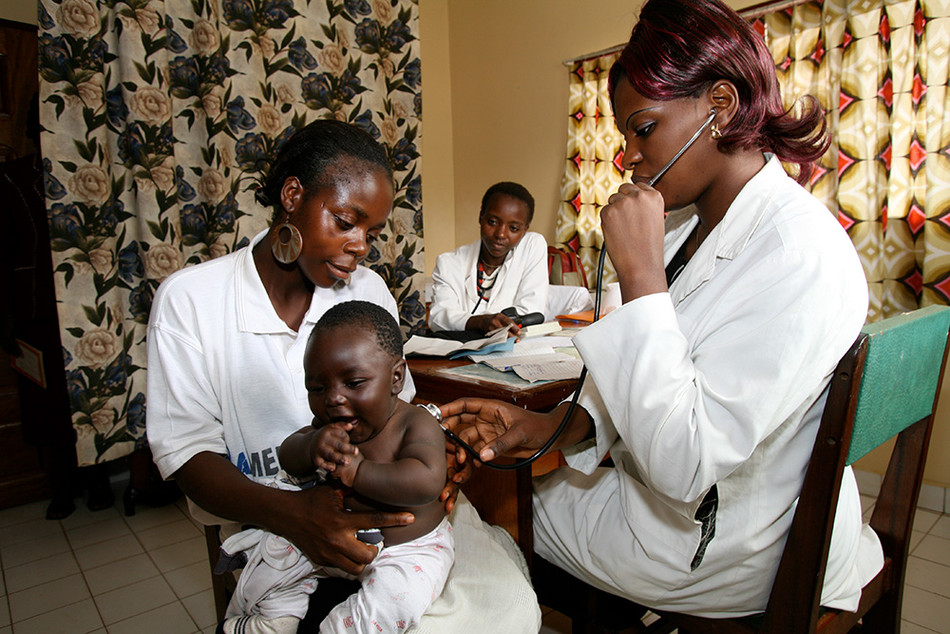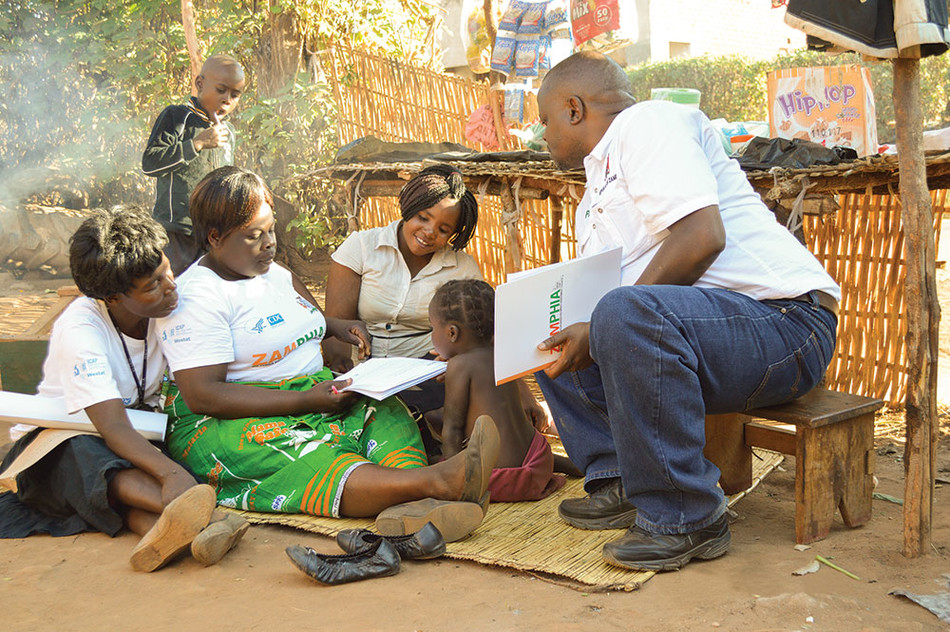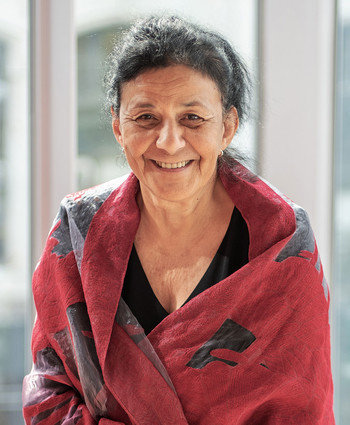Twenty years ago, at the height of the AIDS epidemic in Africa, a team of Columbia public-health researchers led by Wafaa El-Sadr ’91PH set out to do something that many thought impossible: save the lives of large numbers of people with HIV in some of the continent’s hardest-hit countries.
“Critics said we would fail,” remembers El-Sadr. “They said that even if we managed to distribute medicines, there were too few doctors to provide comprehensive HIV care. They told us that the countries’ health-care systems were in bad shape and that patients would struggle to keep up with complex antiretroviral-drug regimens. They believed that trying to save people who were already sick and dying would not be a good use of resources.”
But El-Sadr, an Egyptian-born physician and epidemiologist, had a different vision. She looked at the situation in Africa and saw thousands of talented nurses, physicians, public-health workers, and counselors who could administer HIV care and screening. She saw scores of laboratory workers who, if provided with the training, mentorship, and equipment, could meet their countries’ needs for testing and diagnostics. And she saw tightly knit communities and large extended families whose members could be enlisted to support sick relatives, friends, and neighbors. In essence, she saw people who, if provided the necessary training, tools, and support, could help to pioneer creative new strategies for combating one of the most severe health crises in history.
With a commitment to partnership as a key priority, El-Sadr and her colleagues founded ICAP (initially called the International Center for AIDS Care and Treatment Programs), a global health initiative based at the Mailman School of Public Health. Recruiting Columbia faculty, students, and affiliated health experts, ICAP launched multipronged HIV screening, treatment, and prevention programs on a massive scale in sub-Saharan Africa and other underserved regions, transforming the health of millions through scientific innovation, research, and most importantly, local partnerships and international cooperation.
Two decades after its founding, ICAP is a leader in global health, known for tackling the world’s toughest health challenges. The largest grant-funded center at Columbia, it has more than 2,500 staffers who support training, technical assistance, and clinical services in forty nations on five continents.
ICAP has facilitated the screening of more than fifty-one million people for HIV and brought life-saving treatment to nearly two-and-a-half million with HIV in Asia, Latin America, Eastern Europe, and Africa. Over the past two decades, these efforts have contributed to the annual number of new HIV infections and AIDS-related deaths declining by 50 percent or more in sub-Saharan Africa. “Today, millions of people living with HIV are enjoying long and healthy lives,” says El-Sadr.
El-Sadr, who in addition to leading ICAP is a University Professor and executive vice president for Columbia Global, credits much of ICAP’s success to the deeply collaborative relationships it builds with ministries of health and other partners in government, academia, and civil society in the countries where it works. She says that ICAP staffers design programs hand in hand with these partners to ensure that they are responsive to cultural, social, and economic contexts. This is especially important, she says, when serving vulnerable people who may require extra support in following HIV prevention and treatment plans. “You need to know what the daily lives of your patients are like, and what obstacles they’re facing, in order to serve them effectively,” says El-Sadr. “Our staff and partners on the ground are the ones with the knowledge to meet those challenges.”
Over the years, ICAP has expanded its work in low- and middle-income countries to address tuberculosis, malaria, reproductive health, and maternal and children’s health, as well as noncommunicable diseases such as hypertension and cancer. It has also pivoted to address emerging infections, including Ebola and COVID-19, and supported the strengthening of the health system in war-torn Ukraine. Recently it launched the New York City Pandemic Response Institute to ensure that the city is well-prepared to confront future health crises. In all of this work, ICAP has focused on improving the core health capacities of the countries where it works. It has supported the training of over four hundred thousand nurses, midwives, doctors, laboratory workers, and data managers around the world; it has also upgraded thousands of health clinics, laboratories, and data systems. “ICAP’s programs, in addition to saving millions of lives, are supporting the ability to deliver innovative, high-quality health care and population health, and training the next generation of global health leaders on the ground,” says Linda Fried, the dean of the Mailman School of Public Health.
Building health systems that are resilient, sensitive to local needs, and nimble enough to handle new threats is now more important than ever, according to El-Sadr. “COVID-19 revealed in dramatic fashion that health risks are constantly evolving, and that undoubtedly we’ll be facing more surprises in the future,” she says.
Photos courtesy of ICAP.





